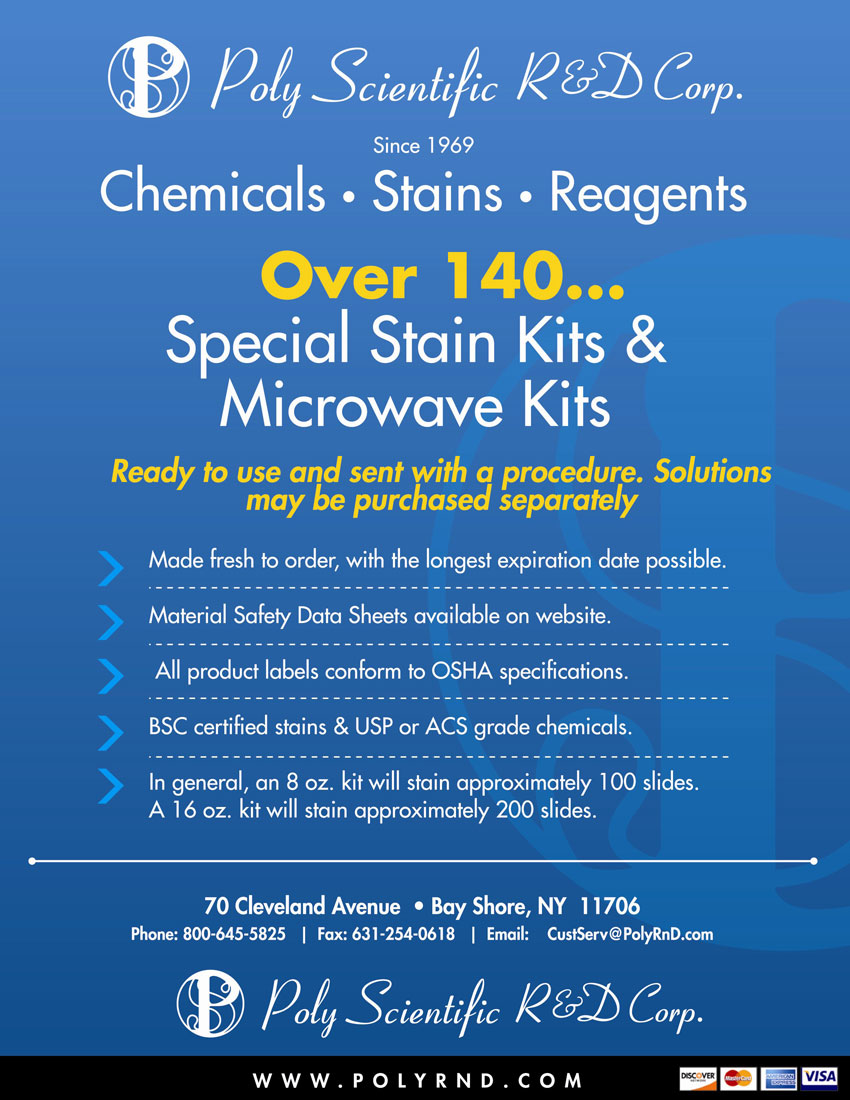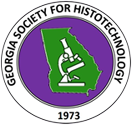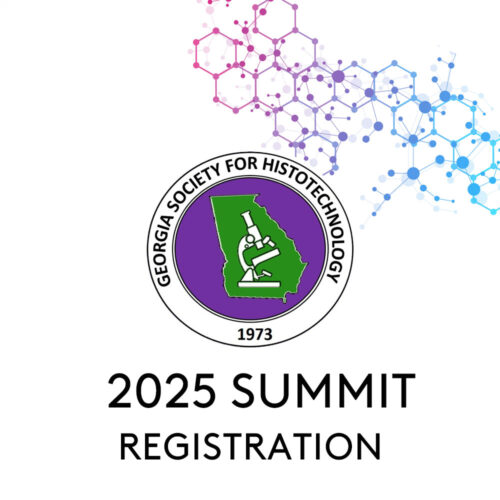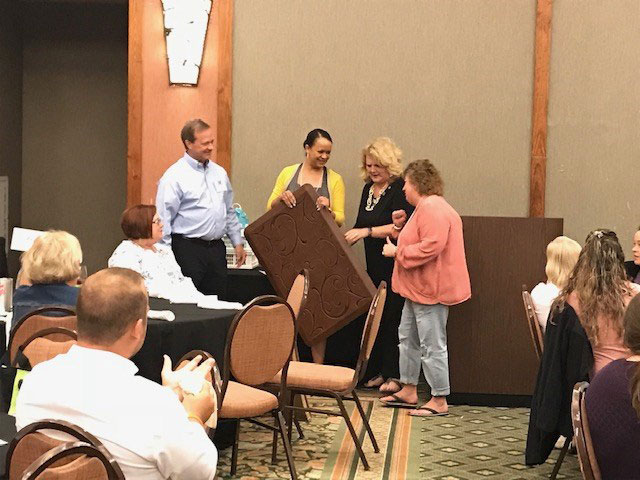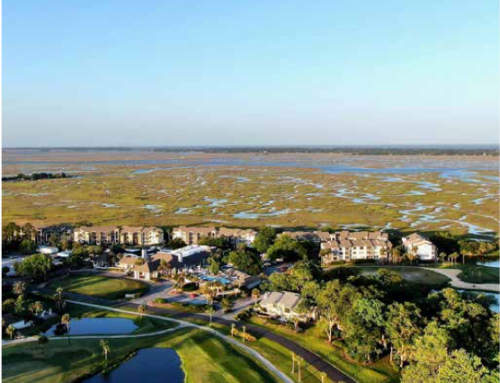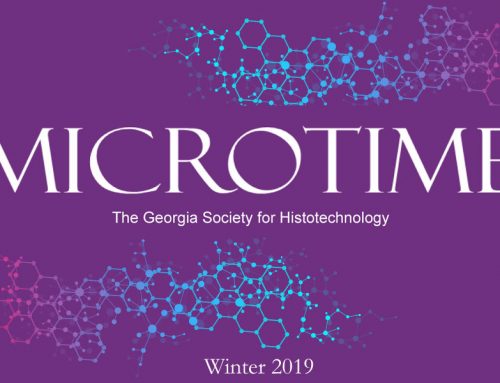As We Look Back and Forward
Histopalooza
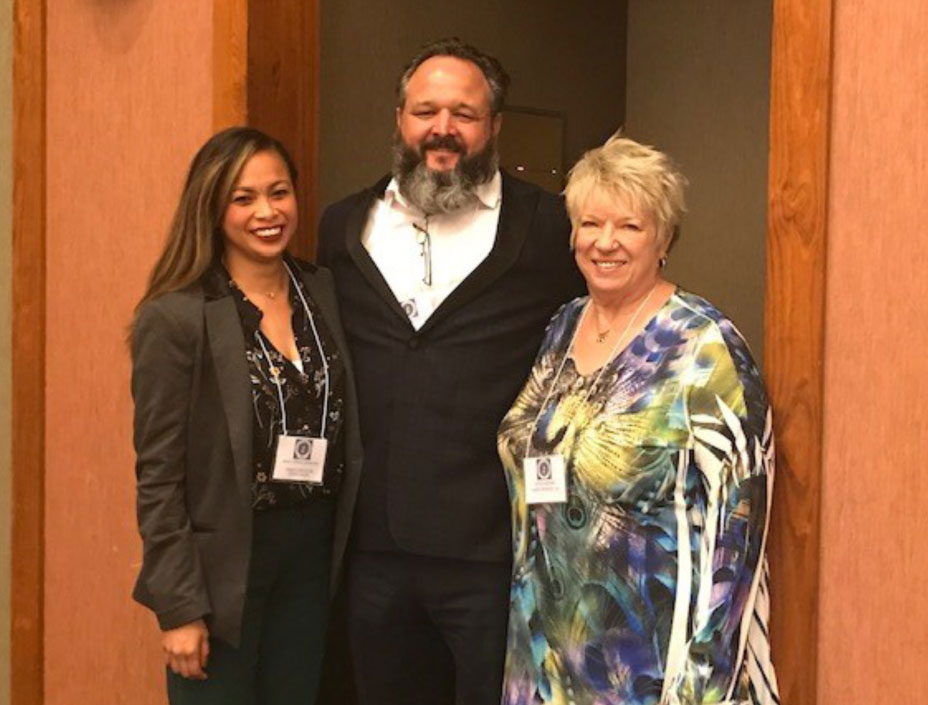
2018
Another great year at Histopalooza at Callaway Gardens Resort and Spa. Thank you so much to all the great members and vendors that helped make our event a success. This was an election year and we want to recognize our out-going board members for all that you have done and contributed to GSH!
Mary Grace Andagan, Secretary
Michael Bourgeois, President
Joyce Weems, Treasurer
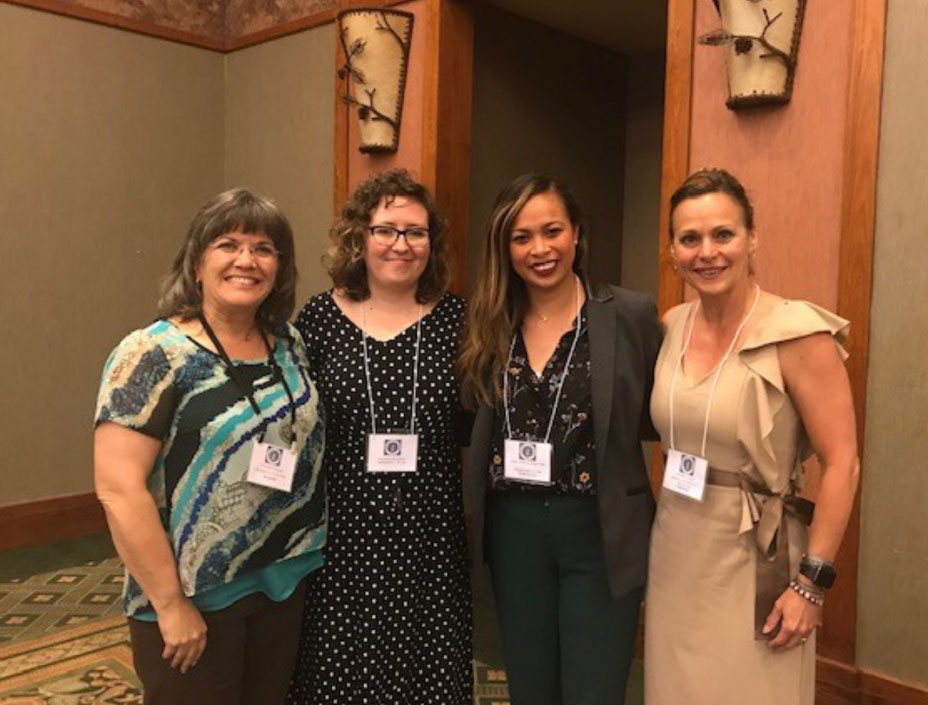
2019
Save the Date
May 3-5 2019 Tybee Island, GA
Welcome to our new board members! They have already been hard at work on the next Histopalooza.
Elizabeth Klar, President
Lauren Sweeney, Vice President
MaryGrace Andagan, Secretary
Norba Targa, Treasurer
Thank You!
Congratulations 2018 Award Recipients!
Histopalooza Callaway Gardens
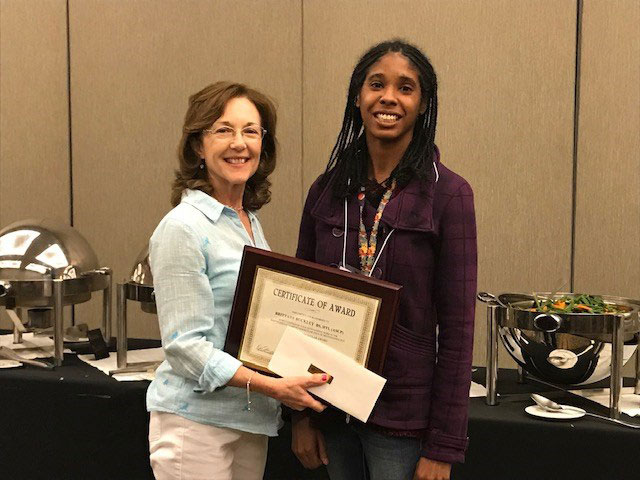
Cindy presents Brittany Buckley
IHC/ Molecular Scholarship
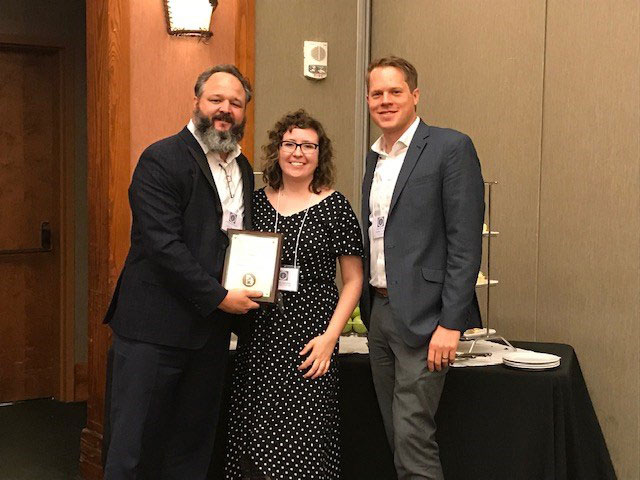
Mike and Chad present Lauren Sweeney
President’s Award
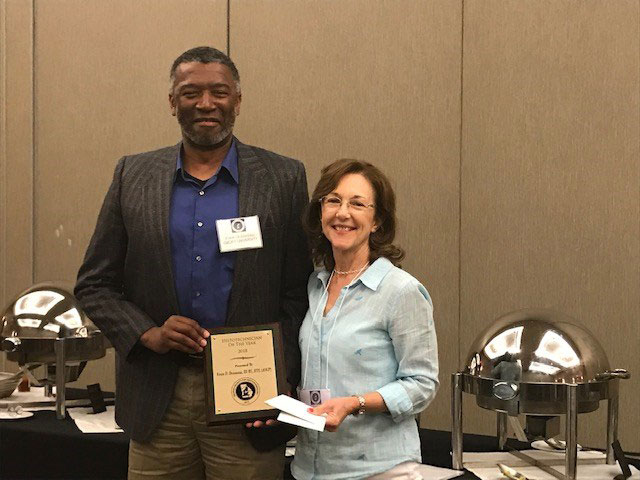
Cindy presents E-van Dessasau, III
HT/HTL of the Year Award

Ericha LeSassier—Student Award
(Sorry, no photo)
| Award | Sponsor | Recipient |
|---|---|---|
| Holde Puchtler Student Award | MediaLab- Judi Bennett | Ericha LeSassier |
| IHC/Molecular Scholarship | Biocare Medical- Joe Myers | Brittany Buckley, HTL (ASCP) |
| President’s Award | ThermoFisher- Chad Powell | Lauren Sweeney, HT (ASCP) |
| HT/HTL of the Year Award | Sakura- Sharon Wehman | E-van Dessasau, III, HT(ASCP) |
Thank you to our sponsors!




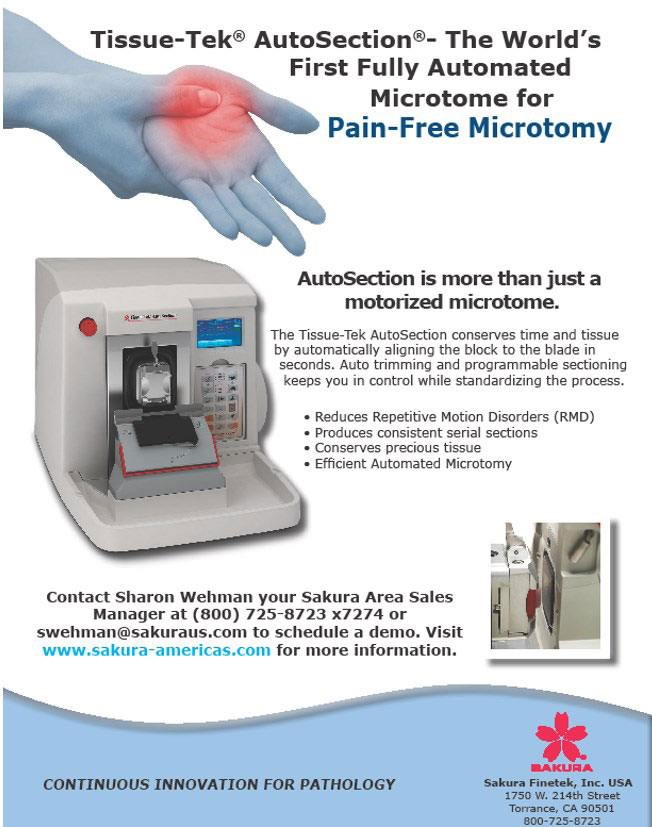
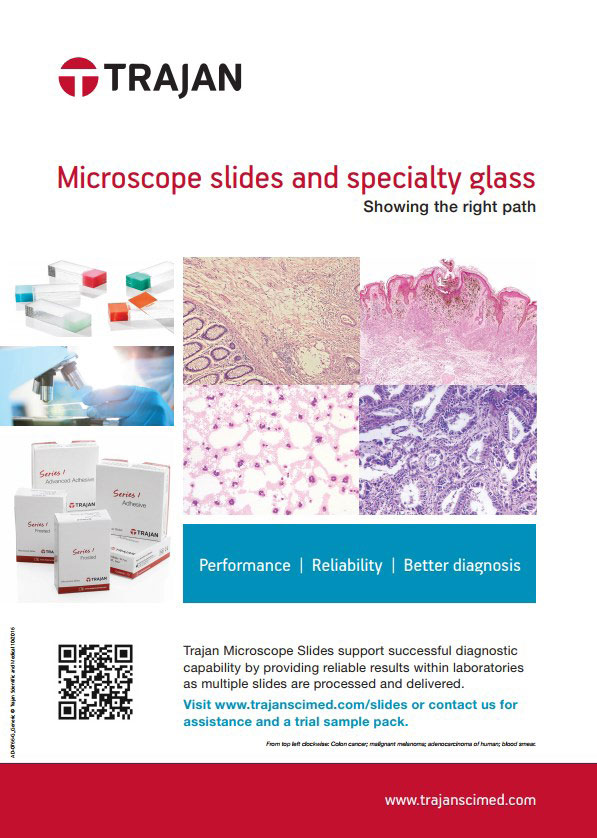
Letter from the President
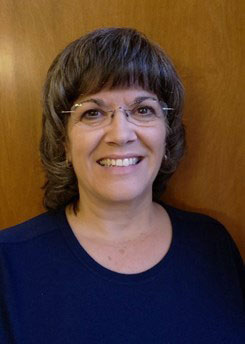 Dear Members,
Dear Members,
Hope everyone is enjoying the beginning of fall with the cooler temperatures and the beautiful colors outside. First of all, I would like to thank all of you for the confidence placed in me by electing me the new president for GSH. I am very excited about working with an excellent board and you as members should know that everyone on the board is very passionate about GSH and is committed to making sure GSH continues to help our members with education and experiences that allow growth in your professions as histotechs.
Several of us represented GSH at the National Society for Histotechnology Convention in St. Louis, Missouri. Being my first time attending, I was impressed with the diverse opportunities for education during the conference as well as the large attendance by vendors. In 2019 the convention will be in New Orleans so I encourage you to attend so that you can benefit from the available educational resources and expand your connections with others that have the same interest of histology.
Histopalooza 2019! I would like to announce that our next symposium for GSH will be on May 3-5, 2019 at Hotel Tybee on Tybee Island. Be on the lookout for registration information that will be available soon. We hope everyone makes plans to attend and we look forward to having an out-standing event! More info to come soon!
Thanks for your support.
Sincerely,
Ely Klar, MS, HTL(ASCP)
Histopalooza
Georgia Society for Histotechnology 2019 Symposium
May 3-5, 2019
Hotel Tybee – Tybee Island, Georgia
Hotel Rates
Rates apply for May 2-5 2019
Group Rates (Subject to 13% tax and $5 per night GA hotel/motel tax
To make your reservation got to: https://www.hoteltybee.com – Hotel Promo Code: histopalooza2019 (need to use this code to get special rates)
Reserve your spot
Georgia Society for Histotechnology 2019 Symposium Exhibit Registration
Molecular Techniques in Histopathology
By Lamar Jones, BS, HT HTL (ASCP)CM
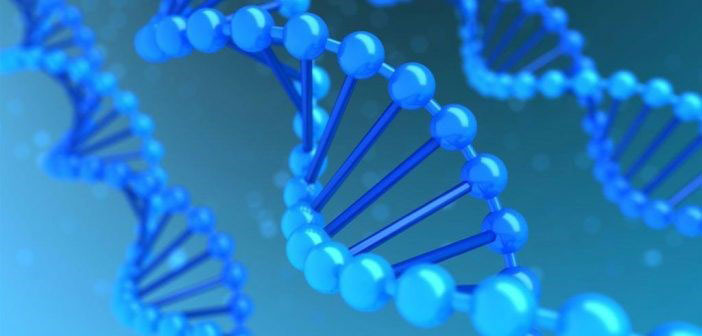
Pathology for the most part concentrates on the morphological aspects of the study of disease. As an adjunct to pathology, molecular techniques are incorporated to isolate and identify specific agents in infectious disease, provide more accurate means of disease diagnosis, define the role of differential gene expression in disease etiology and provide personalized medicine approaches to therapy.
Molecular techniques have become a vital tool in both the clinical and anatomical pathology la-boratories. In anatomical pathology many of the molecular applications have proven their value and success. Molecular techniques can define better disease, provide a more accurate diagno-sis, identify predictive and prognostic markers and contribute to the development of novel mo-lecular targets for particular therapeutic techniques. Some of the presently utilized molecular techniques in pathology and histopathology are analyzing RNA and DNA by in situ hybridiz-tionor fluorescent in situ hybridization (FISH) polymerase chain reaction (PCR).
Personalized Medicine
The era of personalized medicine arrived; the basis of treatment plans is now often built around the patient, the disease itself and how to manage the prognosis and therapy response such as cancer. One of the histological basis of molecular assays is immunohistochemistry (IHC). IHC has the ability to confine tissue cell proteins and project molecular assays and treatment plans to better manage the patient’s cancer. The use of IHC to study cellular markers that often iden-tify certain phenotypes can provide vital diagnostic, prognostic and predictive information im-portant to disease biology. IHC has been a continuing effort to improve sensitivity for the detec-tion of unique antigenic targets with the primary goal of incorporating tissue-based testing with and proteomic information. The use of antibodies to the molecular study of tissue pathology has required the adaption and improvement of IHC methodologies in fixed tissue specimens
IHC and in situ hybridization is often used for recent diagnosed tumors. In some cases multi-gene expression outlines by molecular technologies have been implemented but the outcomes testing for cancer diagnosis in areas such as colon, head and neck, prostate and breast can-cers. IHC has been a forerunner in the development of GIST, Her2, CISH / FISH and microsatellite instability (MSI), to name a few. Certainly with new and improved monoclonal antibodies, the use of IHC on certain tumors has projected new molecular testing applications. In histotechnology, IHC has paved the way for molecular testing.
Laser Capture Microdissection (LCM)
The development of LCM is most helpful for isolating specific cells or cell population from tissue sections such as fixed or frozen sections to be used in other assays such as genetic analysis. One of the unique benefits of microdissection is the production of morphologically confirmed cellular pop-ulations. One histological use of microdissection is the molecular testing for “tissue floaters” to sepa-rate particles of possible floater from the remainder of the tissue sample. Another application is measurement of rare individual neoplastic cells such as the isolation of Reed-Sternberg cells from surrounding lymphoid infiltrates.
In situ Hybridization
In situ hybridization is a technique that can be utilized to detect certain DNA/RNA sequences, particularly in tissue cells to detect the site where the DNA/RNA may be located, this is referred to as “in situ.” This is a unique tool for identifying es. Probes rather than antibodies are used to detect sequences for DNA or RNA. Hybridization usually refers to the chemical reaction between the probe and the DNA/RNA to be detected. When performed on tissue sections or specific mRNA species within individual cells in tissue sections. It can indicate insights into physiological processes and dis-eases.
In situ hybridization techniques require many procedural steps be taken with precise optimization for each tissue tested and for each probe used. To preserve the target mRNA within tissue section, fix-ation in formalin is required. In situ hybridization can provide more information on the specific location of the mRNA in a cell of tissue. In situ has also been instrumental in detecting viral DNA in infectious diseases. Some of the antibodies (i.e., hepatitis B and C) and human papillomavirus (HPV) probes for in situ hybridization projected interest in early infectious diseases detection in tissue sections.
Forensics
One technique often used in forensics for the identification of DNA is “DNA fingerprinting.” A reference sample is collected, which is a sample of the person’s DNA. The preferred sample is usually a buccal smear, which reduces possible contamination. Blood, semen, saliva or other body fluids can also be used. This sample can be analyzed to establish a DNA profile, then the profile is compared to see if there is a genetic match. Often, the DNA fingerprinting is used to determine if a patient’s tissue was accidentally switched or mixed up in the tissue preparation in the histology laboratory.
Future Aspirations
Histotechnology has evolved to become a highly technical and sophisticated science involving numerous techniques and applications for pathology. With the advent of IHC, histotechnology has risen to the forefront of molecular applications. Even the education levels for the histotechnologist have risen to meet the needs of present and future applications of advanced molecular techniques. Exploration to probe into the depths of tissue morphology and retrieve the secrets of composition to the molecular level of pathology will continue with histotechnology as the driving force.
(Reprinted with permission. Originally appeared in Advance Healthcare Network for Laboratory)
GSH Membership News
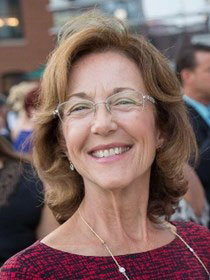
All current members must submit a new form for 2019 to ensure that we have your up-to-date information.
Please contact me (gshmembership@gmail.com) if you have any questions regarding GSH Membership.
Cindy Baranowski, HT(ASCP)
GSH Membership Chair
Region III News

The symposium was in St. Louis, Missouri this year. We had attendee’s from all over the world! I think the overall feeling was that there were excellent and very useful workshops also lots of opportunity for networking.
Andrew H. Beck, MD, PhD, CEO, PathAl was the keynote speaker on the topic of Artificial Intelligence for Pathology: From Discovery to Al-powered Companion Diagnostics.
Richard Levenson, MD was the C.F.A. Culling Memorial Lecture speaker. Dr. Levenson lecture was called MUSE nearly instant slide-free microscopy-plus bonus: getting special stain results from H&E stained slides. Both topics were incredible! If you get a few minutes Google these topics to get a view of the future.
There were some elections that took place in the HOD. The members from Region III elected to positions are as follows:
- Secretary of the House – Jerry Santiago
- Credential Committee Chair – Jennifer Harvey
- Member of Nomination-Election Committee – Beth Roche
Up Coming Region III State Meetings
- Kingston, Jamaica will have their first meeting 3/15/2019
- Alabama is working to build membership for their state
- Florida Meeting will be in Orlando at the Renaissance Sea World, May 17-19, 2019
- Georgia meeting will be at Hotel Tybee, 5/3-5, 2019 on Tybee Island
- Puerto Rico will be South of San Juan, 12/8/2018
It is renewal time for your NSH membership. Please share this information with your co-workers. Remember there are many resources available to you, The Block, NSH Facebook Blog, The Journal of Histotechnology just to name a few. Please explore the NSH.org site for more information.
We must be unified in order to support and build our career choice of Histotechnology!
I want to thank you for your support and wish each of you a very happy healthy holiday season and a blessed New Year.
Sincerely,
Sue Clark, Region III Director
Region III News
MICROTIME AD RATES
Business Card—$75
Half Page—$125
Full Page—$200
Checks payable to:
Georgia Society for Histotechnology (GSH)
c/o Sandy Richards
3003 Creekside Way
Marietta, GA 30066
gshmicrotime@gmail.com
